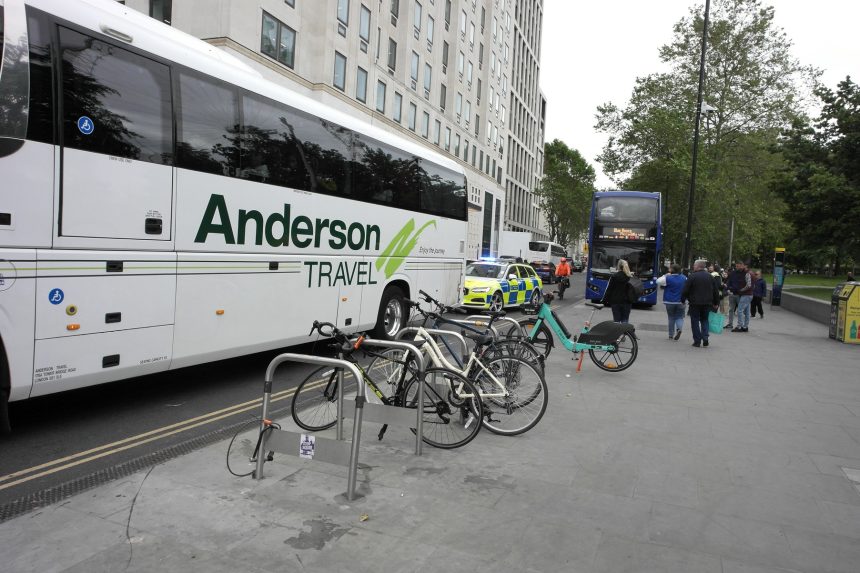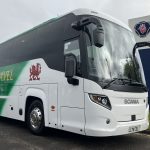Coach operator sales to bus groups have become a well-established part of the industry landscape in recent years, and were considered in this column in February. But two such deals completed by FirstGroup in short order recently underline how that interest on both sides is as buoyant as ever.
Those sales, of Anderson Travel and Lakeside Group, are equally notable. In a shift from general post-pandemic practice on such acquisitions, Anderson Travel majors on tourism-related work. Lakeside boasts the base of contracted income that has become so attractive to bus groups, but its size – 145 vehicles – is the attention-grabber.
Anderson Travel’s primary operating centre being half a mile from Tower Bridge in London and a prominence of incoming tour work undoubtedly make it one of the most challenging coach operations to manage. Former owner Mark Anderson has done so admirably. First will have its work cut out to continue in that vein, but it is obviously confident that it can do so.
Meanwhile, the extremities of Lakeside’s contract operations bring First back to some areas where it was active under previous regimes. Its sale represents the largest deal done post-pandemic, although not quite as big as Lucketts Group when that business was sold to National Express in 2020.
Some thought lines within the coach industry hold that the current interest from bus groups is anchored on contracted revenue, a view that has been weakened by the Anderson Travel sale.
Other observers believe that scope for chunks of existing bus businesses to change hands under franchising is an influence as large operators seek to shore up their positions.
That holds some water. If First and Go-Ahead are considered – the groups showing most interest in coach operator purchases – such a risk is clear. But franchising is inevitable in most mayoral combined authority areas. Neither First nor Go-Ahead operate in all of them. Opportunity is thus as prominent as threat under a revised regulatory landscape.
Some in the coach industry watch the current sales with a combination of interest, surprise, and hope that their turn for an offer will come. There is also a degree of concern about what bus groups’ pursuit of expansion in contracted circles could spell for smaller operators.
First and Go-Ahead are both amid major procurements of new buses. Existing fleet to backfill contract wins would not be hard to source. But the pitfalls that can accompany aggressive bidding for contracts have been encountered before, and it would be a surprise to see them again.
There is also the balancing point of National Express’s period of purchasing family-owned coach operators to consider. While external influences from 2020 onwards significantly swayed how that exercise progressed, as an era it is over, with one or two burned fingers in its wake.
It should also be remembered that in previous decades, some bus operators could not get out of coaches quickly enough. Does the current interest represent a continuation of what has been a slowly evolving cycle over the past almost 40 years? Possibly. The only way to find out is to wait and see. If nothing else, it looks destined to remain as interesting as ever.



























